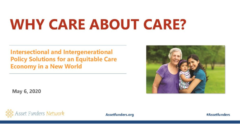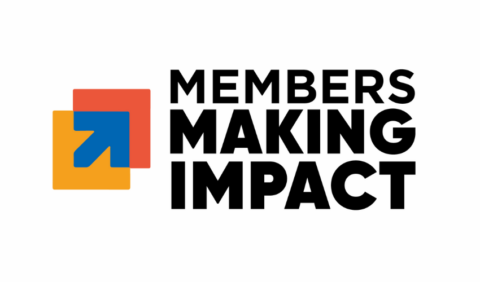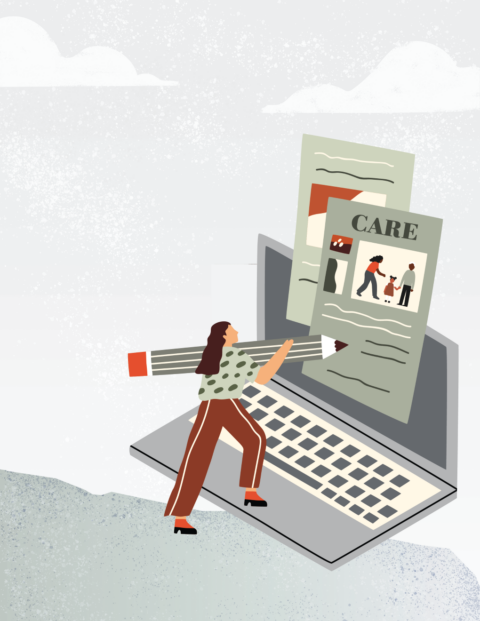Even before the outbreak of the COVID-19 pandemic, working families have been struggling against the rising costs of caring for family members young and old. Care giving threatens their financial health and damages their incomes, workforce productivity, and health. Studies show that childcare costs are 37% of the average single parent’s household income and 25% of people taking care of children (most of whom are women) are also taking care of seniors.
Exacerbating this issue is the recent health crisis, threatening to destroy the fragile financial lives of millions of families who were already living on the financial margins. It’s placing further strain on families’ ability to care for children and older parents. Given the impending recession, ongoing costs, and additional caregiving impacts of the current healthcare crisis along with a rapidly aging and diversifying population in California, a caregiving crisis is emerging that disproportionately affects low-income people, people of color, women, and immigrants.
On Wednesday, May 6, AFN presented a briefing and discussion on the interwoven issues of the caregiving workforce, racial and gender justice, economic security, and health, within the context of the current pandemic. We will identify intersectional short-term
Speakers
Amber Christ, Justice in Aging
Sarita Gupta, Ford Foundation
Sharon Terman, Legal Aid at Work
Padmini Parthasarathy(moderator), Walter & Elise Haas Fund
Resources
Center for the Study of Child Care Employment
Aspen Institute:
Overlooked and Undervalued: How rising dependent care costs hinder household budgets
Dependent Care as an Emerging Financial Security Challenge
Emergency Child Care for Essential Workers – PPIC
“‘Plz Cancel Our Cleaning’: Virus Leads Many to Cast Aside Household Help” – New York Times




